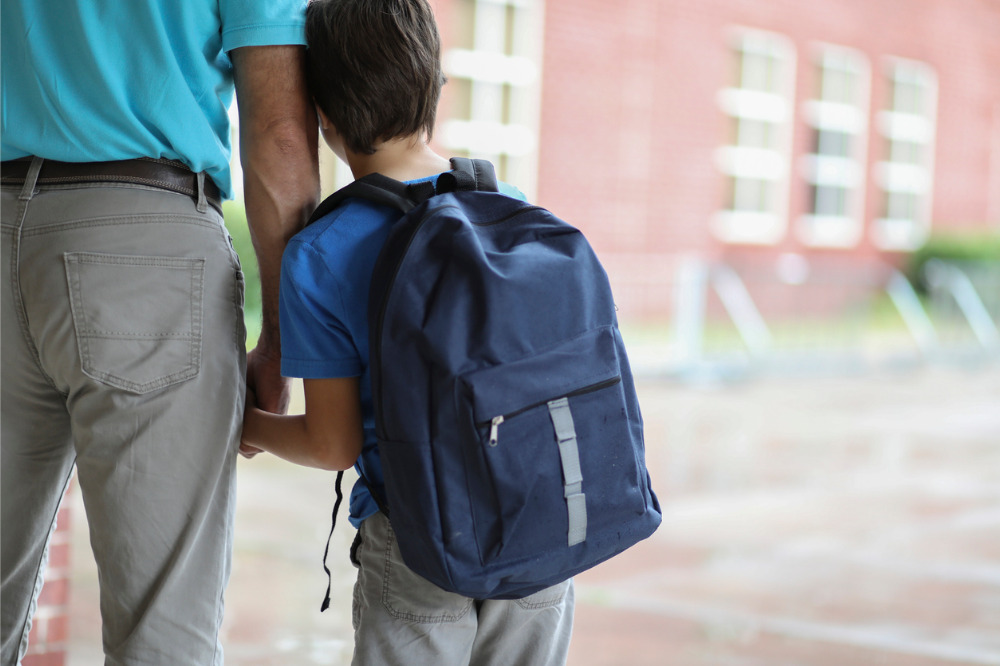
There has been a dramatic increase in levels of anxiety in children from kindergarten to Year 6, new research shows.
The study, conducted by the NSW Primary Principals Association (NSWPPA) as part of ‘The Anxiety Project’, surveyed 5,000 students and teachers across the state. As the project progresses, parents will also be surveyed and will total 19,000 students, their teachers and parents across 54 schools.
The project was motivated by the findings of an Australian Primary Principals’ Association (APPA) survey in 2020 in which nine out of ten primary school principals said anxiety was placing strain on time and resources. Another key finding of the survey was that staff lacked training when it came to identifying and addressing anxiety in students.
The Anxiety Project aims to change that through delivering evidence-based training programs for 58 schools involving 62 school leaders, 87 specialist implementation coaches, 986 teachers and approximately 3,828 parents.
“Our research is indicating high levels of anxiety in young school children, which is negatively impacting student learning outcomes and quality of life,” NSWPPA president Robyn Evans said.
“The NSWPPA wants to help our school community to stem the tide of rising anxiety, so we are enlisting the support of principals, staff, students and parents as we roll ‘The Anxiety Project’ out across NSW schools.”
Evans said that through ‘The Anxiety Project’ the NSWPPA is hoping to see a reduction in student anxiety by providing teachers and parents with improved skills in identifying, supporting, and responding to anxious behaviours.
The initial research findings (co-funded by the NSW government) involved the first 5,000 students who have entered ‘The Anxiety Project’, with 19.6% of primary school children surveyed facing ‘high’ levels of anxiety, a substantial increase on previous research that set this figure at 6.9%.
“When it comes to anxiety, there is usually nothing wrong with most children’s brains. In around 70% of cases anxiety is learned behaviour,” Michael Hawton, psychologist and founder of Parentshop, told The Educator.
“What this means is that if you change the environment, you can change the anxiety.”
Hawton said most anxious behaviour tends to get worse or better depending on what’s happening in the child’s interactions with his/her environment.
“The problem of what is driving an upswing in observable anxiety in children is that it is often complex, and we are dealing with multiple factors. The major of these tend be children not getting the right amount of sleep and too-early access [children under 13] to social media platforms which are based on addictive design features,” he said.
“We can also see parents at times being less willing to challenge or guide their children through uncomfortable emotional problems, compelled instead to take their children’s pain away or solve problems for them. If parents know what to do instead, they can use simple strategies to help their child deal with anxiety.”
NSWPPA Deputy President and ‘The Anxiety Project’ co‐leader Rob Walker said the initiative builds skills and understanding of “how to strike when the iron is cold” to build student resilience – leading to better learning and life outcomes for students.
“Whilst the level of anxiety as we commence this project is concerning, we believe that this intervention will make an enormous difference to the learning outcomes and wellbeing of the students,” he said.
The research also uncovered that more than half of teachers surveyed (56.3%) said they were ‘not confident’ or only ‘somewhat confident’ in identifying child anxiety and that only 27.2% of school staff rated their skills addressing child anxiety as ‘competent’ or ‘extremely competent,’ which is something that ‘The Anxiety Project’ aims to address.
‘The Anxiety Project’ will run for two years and will soon begin to incorporate parent learning programs and parent responses into the project, with the NSWPPA looking to partner further with the NSW government to expand the program at a greater number of schools, with the aim to assist teachers and parents in improving their confidence in identifying anxious behaviours and knowing how best to respond to them.
“It has long been suspected that adult ‘accommodation’ of anxious behaviour from children is making things worse rather than improving student outcomes,” Hawton said.
“The key learning and skill building for students, parents, and school staff through ‘The Anxiety Project’ will assist them to recognise anxious behaviours and how best to respond, overcoming accommodations and helping students to improve their resilience.”


